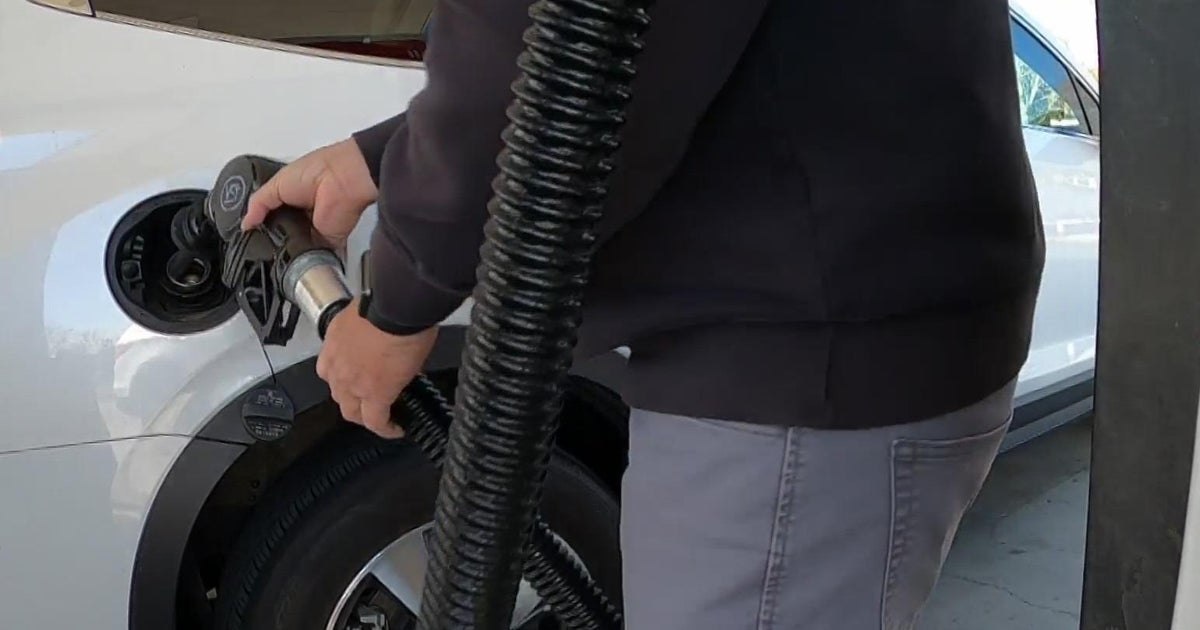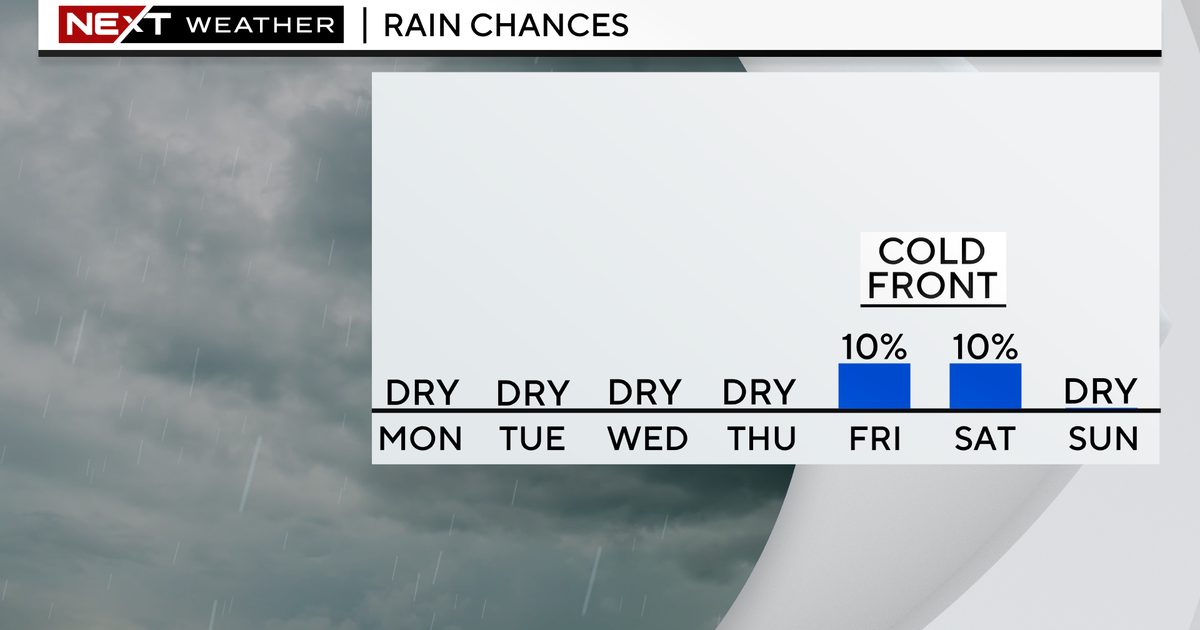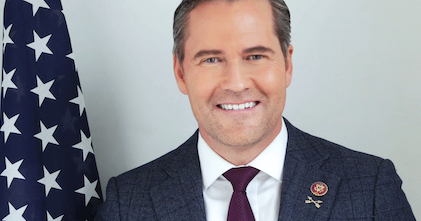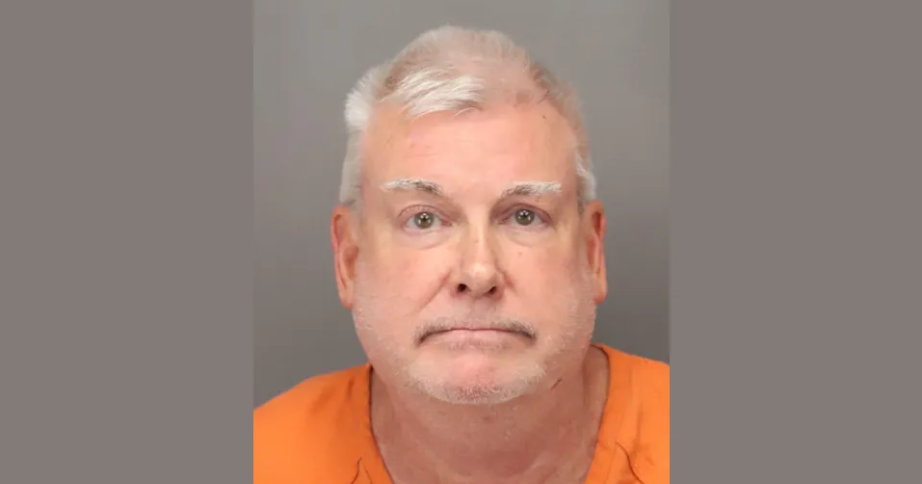Haiti Presidential Vote Peaceful, But Slow
PORT-AU-PRINCE - (CBS4) - As Haitian-Americans in South Florida watch from hundreds of miles away, their friends and relatives back home cast ballots Sunday for president in hopes a new leader could do what others have not: Replace homes and schools in the earthquake-devastated capital, improve education and create some optimism for the future.
Both candidates made recent visits to the Miami area. The choices on the ballot are Michel "Sweet Micky" Martelly, a popular musician who has never held public office, and Mirlande Manigat, a former first lady and senator and longtime fixture on the political scene.
Voters formed what for the most part were orderly lines throughout the country, some shrugging off delays of three hours. There was no real hurry because unlike elections in the US, tabulations are expected to be very slow. Haitian officials say it will be 11 days until Haitians know the name of their new President, as the results will be announced March 31st.
The vote was much calmer than the first round of voting in November, which was marred by disorganization, voter intimidation and allegations of widespread fraud. Disputed preliminary results had shown government-backed candidate Jude Celestin edging out Martelly for a spot in the runoff, but under international pressure, Haiti's provisional electoral council reviewed the count and eliminated Celestin from the race.
Whoever wins will face enormous challenges in a country emerging from last year's earthquake, which the government estimates killed more than 300,000 people. A multibillion-dollar reconstruction effort has stalled, and some 800,000 people still live in the camps that emerged around Port-au-Prince after the quake. Compounding the misery is a cholera outbreak that has killed more than 4,700 people and is expected to surge again with the rainy season.
The new President will face intense scrutiny from South Florida, home to the largest group of Haitians outside of the ravaged nation. While many South Florida Haitians are still citizens of their homeland, they were barred from taking part in Sunday's election unless they traveled home. For many that was impossible, either due to questionable immigration status or a financial inability to travel.
Their inability to take part does not mean they don't share the frustrations of people in Haiti.
"There is a lot of frustration," said 28-year-old Jazon Didier, a computer scientist and Manigat supporter. "People want a change and a better life."
Martelly seems to have captured the ardor of young jobless voters. Hundreds cheered him wildly like the pop star he is as he danced on the roof of an SUV after casting his ballot across the street from a tent encampment of people who lost homes in the earthquake.
Manigat, who touts her academic credentials and tells voters to call her mother, appeals to the country's educated middle class, a sliver of the population in a largely poor nation of 10 million.
Two recently returned ghosts from Haiti's past — Jean-Bertrand Aristide and Jean-Claude Duvalier — formed part of the backdrop to the election, but there was no evidence that either had any effect on it.
Former President Aristide returned to Haiti on Friday after seven years of exile in South Africa. The U.S. and others in the international community felt the popular but divisive figure could destabilize the election, but although he complained upon his arrival that his party had been excluded, he stayed out of sight Sunday.
"I don't think he wants to be president again. He hasn't said anything that would indicate that at all. He has been very clear about his reason and motive for going back," said Ira Kurzban, a South Florida attorney who was represented Aristide for two decades.
Kurzban says Aristide wants to help rebuild Haiti, particularly when it comes to education. Aristide had been elected twice and ousted twice with allegations of human rights abuses and corruption.
Duvalier, the infamous dictator known as "Baby Doc" who was forced from the country in 1986, made a surprise return in January. He remains in Haiti but has laid low as a judge investigates whether criminal charges should be filed against him.
Edmond Mulet, head of the U.N. mission that has maintained order in Haiti since 2004, said he was confident the election would go well.
"Everything is peaceful, more or less OK," Mulet said as he toured polling stations. He said participation appeared to be higher than the Nov. 28 first round.
Martelly and Manigat have similar agendas, promising to build homes, foster economic growth and make education universal in a country where only half the children attend school. Both have said they want to restore Haiti's armed forces, eliminated by Aristide in 1995 after a long history of abuses.
But their backgrounds could not be more distinct: Manigat is a 70-year-old university administrator and former senator; Martelly is a 50-year-old master of Haitian compas music who has no college degree and a history of crude onstage antics.
"In the past, he wasn't a politician; he was an artist," said Beatrice Antonio, a 20-year-old Martelly supporter, eager to shrug off the past. "He's young and maybe he has different ideas."
It is precisely his lack of political background that appeals to 40-year-old truck driver Jean Robert Pierre.
"We don't need experience," said Pierre, who said in the past he was a supporter of Aristide, long a champion of the poor. "We need someone who can work."
Marlene Telusena, a 38-year-old nurse, wouldn't exactly say for whom she voted, but made it clear her priorities were in line with those of Manigat. Telusena said she wanted to see a change in the education system so more kids could attend school in Haiti and overseas.
"We need diligence and morality to return to Haiti, because the youth must be able to take this country seriously," Telusena said. "We need competent leadership to achieve real change. I don't want to reveal my vote, but it's going to someone who is moral, experienced, and who the international community would consider serious."



